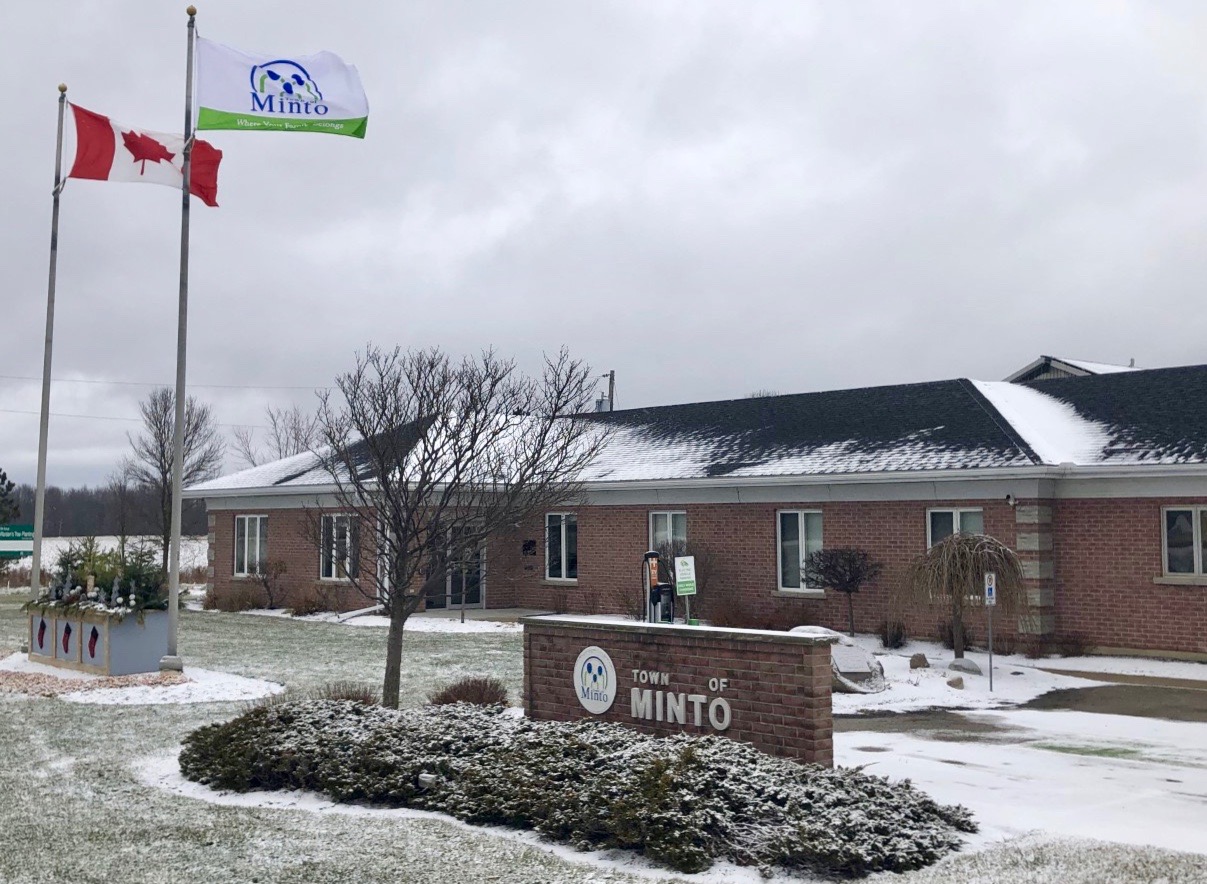MINTO – The Town of Minto has approved the 2023 budget including a 4.88 per cent increase in the local tax levy and a tax rate increase of 1.88%.
The increases mean the town portion of the typical tax bill will rise by about $24.
When combined with county and school board tax rate increases, Minto taxpayers should expect to pay about $21 more per $100,000 worth of assessment in 2023, or about $52 on a home with the typical residential assessment of $250,000.
The budget was approved at the March 21 council meeting.
Treasurer Gordon Duff noted the figures were essentially unchanged from those presented during operating and capital budget meetings, held on Jan. 17 and Feb. 21 respectively, and a public budget open house on March 7.
“Our budget has been before council on several occasions in the last couple of months now and it is basically unchanged…” said Duff.
“We’re still at the 4.88 per cent levy.”
“We all have our wish list and that has been … severely cut back to what we can do,” said Duff.
“And we’ve emphasized that our infrastructure deficit, unfortunately, is growing this year, because we just don’t have the resources to do all the projects.”
Duff noted Minto is not alone in needing to keep a tight grip on infrastructure spending.
“In fact, I don’t think there’s any municipality in Ontario that is doing everything that they would like,” he stated.
“But we think it’s a reasonable blend of taking care of the priorities and still being fiscally responsible.”
Mayor Dave Turton said, “We’ve been over these numerous times and I know how hard that our treasury (department) has worked on this and all of our staff have brought numbers to you.
“We believe that the 4.8 is a good number. And we appreciate your help on it.”
In dollar terms, the draft budget shows the 2023 tax levy (the amount supported by taxes as opposed to other revenue sources) rising by $281,200 to $6,039,800, from $5,758,600 budgeted in 2022.
The draft budget anticipates spending of:
- $2,347,000 on public works, up $154,000 or 7% from 2022;
- $1,668,000 on administration, down $19,900 or 1.18%;
- $1,659,000 on community services, up $142,000 or 9.36%;
- $1,096,800 on fire and emergency services, up 74,600 or 7.3%;
- $490,200 on economic development, a decrease of $40,700 or 7.67%; and
- $346,100 on building and planning services, down $27,000 or 7.24%.
The capital budget is $4,112,500, with $350,000 coming from development charge reserves, $1,284,500 from taxation, $549,000 from non-tax funded reserves, $520,000 from the federal Building Canada Fund and $1,364,000 from the Ontario Community infrastructure Fund.
Capital spending by department breaks down as follows:
- administration $162,000;
- building and planning services $15,000;
- community Services $320,000;
- economic and community development $72,500;
- fire and emergency $670,000;
- public works $1,815,000;
- wastewater services $400,000; and
- water services $658,000.
A staff report from the town’s finance department states the 2023 capital budget “focuses on investments in infrastructure renewal across the organization funded from a combination of tax funded reserves, non-tax funded reserves, development charges, and grants.”
Highlighted capital projects in the area of administration include enhanced (digital) firewall protection and strategic plan updates.
Community services department capital expenditures will include mechanical upgrades at arenas in Harriston and Palmerston, one additional vehicle and one replacement vehicle.
Paving in the Palmerston Industrial Park and additional public art installations are planned under economic and community development.
Replacement of all self-contained breathing apparatus as well as radio system upgrades are planned for fire and emergency services.
Public works capital plans include several road paving and sidewalk replacement projects and reconstruction of Seip Lane in rural Minto.
Although the town’s human resources policy calls for a staff cost-of-living allowance (COLA) increase of 6.9% (based on the September CPI), council agreed to a staff proposal which caps the COLA at 4% for 2023 in order to avert a larger levy increase.
The remaining 2.9% will be carried forward for consideration during 2024 budget deliberations.
Council approved the budget as presented.
Councillor Judy Dirksen declared a conflict of interest on the compensation portion of the winter control budget.




